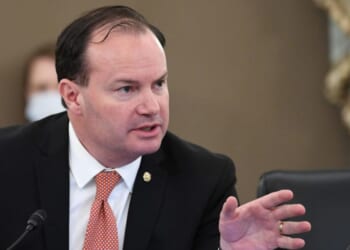Rafe Fletcher is the founder of CWG.
Speaking “my truth” makes one think of an Oprah Winfrey interview rather than a cantankerous German theologian. But it was the gist of Martin Luther’s 95 Theses in 1517. Kickstarting the Protestant Reformation, he argued that no authority could mediate one’s relationship with God.
Truth was deeply personal.
In Protestants: The Faith That Made the Modern World, Alec Ryrie argues that:
“Luther’s fire caught because fuel had been quietly building up for some time.” He tapped into a deep resentment against a Catholic Church that preached poverty while hoarding wealth. A Church whose popes had wriggled free from political control to establish a “vigilantly guarded independence.”
Luther’s revolt echoes in the UK’s populist politics. By which I mean Reform and other conservative elements focusing their ire on corrupt and unaccountable elites. But those forces must be wary of the “wild west” Ryrie refers to in Protestantism’s early days. Once authority collapsed, anything could take its place. Just as Reform has fielded candidates calling for cannibalism, so early Protestants faced splinter groups who advocated mass orgies in the name of religious renewal.
Despite its early adoption by leading powers like the UK and the Netherlands, Ryrie argues Protestantism only gained real traction in the 18th century when feelings gained “durable institutional expression.” New religious elites countered anarchic tendencies with fresh doctrines. Passions were given boundaries.
Populism today faces a similar problem. It can seem nebulous, united only by a sense that the establishment is rotten. And with radically different or non-existent ideas for fixing it. But two things can be true at once:
centrist defenders of the status quo are guilty of complacent delusion, and endless railing against elites is a self-defeating game of whack-a-mole.
At some point, any political system must concentrate decision-making in the hands of a smaller group. There must be a professional class.
Protestantism, like populism, has a vibe. There is an insider’s calling card. We recently christened my daughter and my small rebellion against my family’s plan for an Anglo-Catholic ceremony was to imbue the service with a distinctly Protestant favour. Amazing Grace as the opening hymn. Paul’s letter to the Ephesians on salvation through faith. And the Battle Hymn of the Republic as the finale. Grace over good works. A small poke in the eye for those high Anglicans still casting furtive glances towards Rome.
I’m an evangelical agnostic. Any Protestant posturing is mostly trolling rather than deep doctrinal belief. And populists indulge the same political impulse. Getting a rise out of sanctimonious liberals is fun. The two most recognisable populists on either side of the Atlantic, Farage and Trump, enjoy it. Knowing winks are part of their appeal, but it makes it difficult to reach across political boundaries. Policies that could win broader support get obscured by rhetorical nudges to their devoted tribes.
One of Luther’s early sympathisers was Erasmus of Rotterdam. But after the Germans Peasants’ War of 1524-5, he grew increasingly uneasy with the chaos Luther’s revolution invited. Erasmus wanted to restore the church from within rather than destroy it. He was a natural ally but unwilling to throw everything into the flames for the vague promise of radical renewal.
Populism risks alienating its own potential Erasmuses. It has a blind spot in assuming the validity of all resentments. The crux of the woke backlash is that you can’t simply wish things into existence. “My truth”, taking to its extremes, is a licence to bend reality to one’s own identity. Yet populists indulge the same thinking when they make the “people’s will” self-justifying, no matter how opaque or contradictory.
Brexit was a prime example. The argument stopped being about its merits and instead became a test of loyalty to the will of the people. Remainers perpetuated this with their “People’s Vote” campaign. It turned into a tribal contest of feelings, with purity prized over pragmatism. Just as early Protestantism’s two biggest movements – Lutheranism and Calvinism – stayed divided over the meaning of the Eucharist, rather than finding common ground.
Framing everything as honest working folk against a corrupt elite ostracises the professional class. The Policy Exchange’s Dean Godson recently emphasised to me the futility of governing without winning over swathes of this group – teachers, police officers, civil servants. Large parts of the public sector always leaned left but it’s now overwhelmingly lopsided. Red Wall conservatism signals there is no desire to change that.
Farage’s Reform party may yet bridge the gap. It is lucky to retain the hugely capable Zia Yusuf after his brief exit. Speaking on Triggernometry, he didn’t just wheel out the usual tropes around working people but also spoke to the professional class. He talked about London-based couples on six figure salaries whose relationships were fraying under the pressure of 80-hour weeks. Yet still unable to afford the schools they want for their children. Why isn’t the system working for people who should be comfortable?
Populists must distinguish between feelings of genuine value and tribal markers. What are intuitive truths and what is capricious and fleeting? Just as Luther exposed valid hypocrisies in a dominant elite, so do many populist grievances point to real problems. But identifying that is the easy part. Charting a way forward is harder.
It involves difficult trade-offs.
When Farage claimed credit for Labour’s U-turn on the winter fuel allowance, he framed it as justice for the stoical war-era generation who had diligently saved all their lives. He ignored the awkward reality that the demographic is not enjoying the fruits of its own labour but subsidised by younger professionals with no route to the same asset-owning prosperity.
It’s a tribal reward for a socially conservative bloc rather than an effort to build a broader coalition.
Ryrie shows Protestantism only became a lasting force when it shed its early righteousness and found ways to reinvent itself. Early doctrines taught they were God’s chosen people with little incentive to convert others to the cause. But its emphasis on human sin and fallibility proved more fertile ground. It enabled the movement to admit shortcomings and reinvent itself.
Populism needs a similar turn. Instead of instinctively dividing society into sinners (elites) and the saved (working people), it needs to reach across divides. Resentment can spark a movement but only discipline and humility can sustain it.


![Steak ’n Shake Mocks Cracker Barrel Over Identity-Erasing Rebrand [WATCH]](https://www.right2024.com/wp-content/uploads/2025/08/Steak-n-Shake-Mocks-Cracker-Barrel-Over-Identity-Erasing-Rebrand-WATCH-350x250.jpg)




![Mount Rushmore Could Get Trump Upgrade Under GOP Push [WATCH]](https://www.right2024.com/wp-content/uploads/2025/07/Mount-Rushmore-Could-Get-Trump-Upgrade-Under-GOP-Push-WATCH-350x250.jpg)

![Soros Network, Others Behind LA Riots [WATCH]](https://www.right2024.com/wp-content/uploads/2025/06/Soros-Network-Others-Behind-LA-Riots-WATCH-350x250.jpg)
![Human Trafficking Expert Details Horrific Biden Admin Endangerment of Migrant Kids [WATCH]](https://www.right2024.com/wp-content/uploads/2025/07/Human-Trafficking-Expert-Details-Horrific-Biden-Admin-Endangerment-of-Migrant-350x250.jpg)





